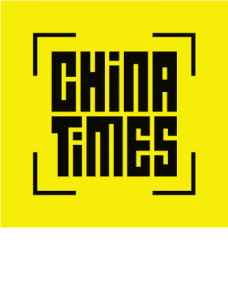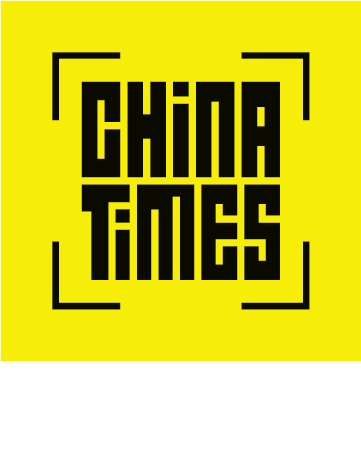“作为一名前荷兰外交官,我的处世之道是永远不要关上对其他国家开放的大门,无论是敌是友。因为你永远不知道在未来何种情况下,你可能再次需要他们。”这是现年84岁的荷兰前外交大臣Ben Bot(本·博特)在阿姆斯特丹有关中国专题讲座上的发言。
11月4日,荷兰首都阿姆斯特丹著名的地标性建筑——世界上第一家股票交易所Beursvan Berlage举行了有关于中国专题的系列讲座。本次活动的主办方是荷兰的The BeleggersFair(投资展会),这是荷兰投资者们一年一度的“内部信息”交流大会。荷中友好协会(VNC-China)与《中荷商报》收到活动主办方的邀请,首次在活动现场增设了“中国场”主题讲座。活动邀请了多位荷兰政界、商界人物发言,也有优秀的中国企业家与会。荷兰前外交大臣Ben Bot(本·博特)为本次活动致开场辞。

演讲稿全文翻译如下(英文原文在文末):
女士们先生们,今年有这么多人到场来参与并讨论同中国贸易的多样性与联结的议题,这是一个非常好的信号。中国刚刚开完了二十大,中国下一个五年发展计划的“墨迹未干”,虽然还很难准确地预判未来决策的影响,但是这些都不影响一个确定的事情:经过30多年的改革开放以及引进外资,中国在处理与世界的关系上会更加谨慎。
当然,现在还有很多事情不够明确,比如,中国是否仅在对外经贸方面继续保持开放,还是会在其他方面也进行改革?中国领导人是否会更加雄心壮志?比如,中国曾经自信满满地认为将在经济上超越西方,但是新冠疫情打断了这一形势:供应链、房地产等问题开始涌现出来。这也影响到了中国消费者的信心,无论是从日常生活用品还是到奢侈品的购买。
中国目前执行的清零政策在我看来有利有弊,负面的部分包括中国的学者们停止了出席国外的研讨会,商人们也很难出国做生意,这也放缓了国外的思想与中国的交流。请允许我说一句自己的看法,这有可能让中国受到外国商人青睐的形象“大打折扣”。
但是令人欣慰的是,我也注意到各种信号显示中国正努力加速成为一个科技强国。中国在半导体、航空航天、以及汽车制造等领域加大了投资力道。这也意味着中国需要国外的技术指导、投资,以及科技产品与精密材料。作为西方国家,我们也需要中国制造的原材料以及各种商品。无论未来短期内将发生什么,我们都不可否认中国制造的产品与原材料是西方无法失去的。同时,核心的商业产业依旧具有高度的政治敏感性。为了克服困境,未来几个月中我们彼此之间进行开放且有建设性的对话是非常重要的。无论是中国与西方,买卖双方,投资者与生产者,这样的对话都是建立互信的基石。
最近,中国人民银行行长易纲说:“中国经济尽管面临一些挑战和下行压力,但总体延续恢复发展态势,中国(经济的)的潜在增长率将维持在合理的范围内。”这是非常好的信号,这也需要在未来的几个月被证实。
作为一名前荷兰外交官,我的处世之道是永远不要关上对其他国家开放的大门,无论是敌是友。因为你永远不知道在未来何种情况下,你可能再次需要他们。虽然中国未来五年的走向尚不完全明了,但是我相信(中国)对荷兰商业的大门永远是敞开的。荷兰也在寻找对华投资与贸易的风口。未来大趋势不会改变,这已经足够鼓舞人心,这也是两国互利共赢的优良传统。
我也注意到今年是中荷两国建交50周年。两国长期投资,商业往来的机会很多。我相信中国将继续坚持市场经济,并且对荷兰提出的建设性议题保持开放态度。因此,荷方也会期待用对中国充满兴趣的态度和投资意向换来两国的互惠。

Ladies and gentlemen,
It is a good sign that so many of you have come here today to discuss diversity and connectivity in relation to doing business with China. It is also an auspicious moment, a week after the 20th party congress of the communist party in Beijing. The ink of the five-year program is barely dry, so to speak. Therefore, it is difficult to assess precisely the impact of the many decisions taken, but one thing is sure: after three decades of opening China to foreign firms and promoting investment, China has become more closed and careful how to shape its relationship with the world at large.
All the same it is not entirely clear what that means in practice. Will China open up further only as far as certain aspects of foreign trade are concerned? Or will it adopt a more careful and selective approach in general? Mr. Xi’s control ambitions may make the communist party stronger but may make it otherwise weaker than it would have been under previous regimes. More than a year ago, for example, Mr. Xi still exuded confidence, suggesting that the country’s economic growth would surge ahead of Western competitors. But unfortunately, the two-month covid lockdown disrupted global supply chains, led to a slump in the housing market and undermined a long-term healthy growth. It notably stifled consumer spending on everything from simple everyday products to high end luxury goods. And the Economist recently pointed out that zero covid policies have curbed movement into and out of the country, that Chinese scholars have stopped attending conferences abroad, that business executives barely get a chance to travel abroad and that an economic firewall may slow down the influx of foreign ideas. And I may add that possibly China will become a less hospitable place for foreign businessmen.
On the positive side I notice many signals underlining China’s ambition to accelerate its rise as a technological superpower. China is heavily investing in semiconductors, aircrafts and cars. As such it will need the support of foreign technocrats, but also of foreign investment, technological products and sophisticated materials. And the West, of course, will need to continue to rely on the import of basic materials and many other products from China. Whatever the near future may bring, China remains undeniably the largest producer of manufactured goods and many basic materials the west cannot do without. Still, the most lucrative business sectors may also be the most politically sensitive. To overcome stagnation, it is important that we engage in an open and constructive dialogue in the months ahead. And that presupposes a relationship of trust between the West and China, between sellers and buyers, investors and producers, from both sides.
Recently the Central Bank of China governor Yi Gang said: “Despite some challenges and downward pressure, the Chinese economy has remained broadly on track. China’s potential growth rate is expected to remain in a reasonable range.” These are positive signals but what counts are the results over the coming months.
As a former diplomat I have always lived by the maxim : never close the door to other countries or your adversaries and opponents. You never know when and under what circumstance you will need them again. At present it may not yet be entirely clear which course China will choose for the coming five years, but I expect that for the Dutch business community the door will certainly remain open. As such the Netherland may look forward to many opportunities for investing in- or trading with China. As such it should prolong, in a positive spirit, an age-old tradition of beneficial contacts between our two countries.
I may bring to your attention here that soon we will celebrate the fact that 50 years ago we established diplomatic relations between our respective countries. So, for the long-term investor and for the serious businessman there will remain many good opportunities.
I believe that essentially China will continue to operate a market economy and demonstrate an open mind towards constructive proposals from our side. For that reason, The Netherlands expects its attitude of interest and willingness to invest to be reciprocated by China.


